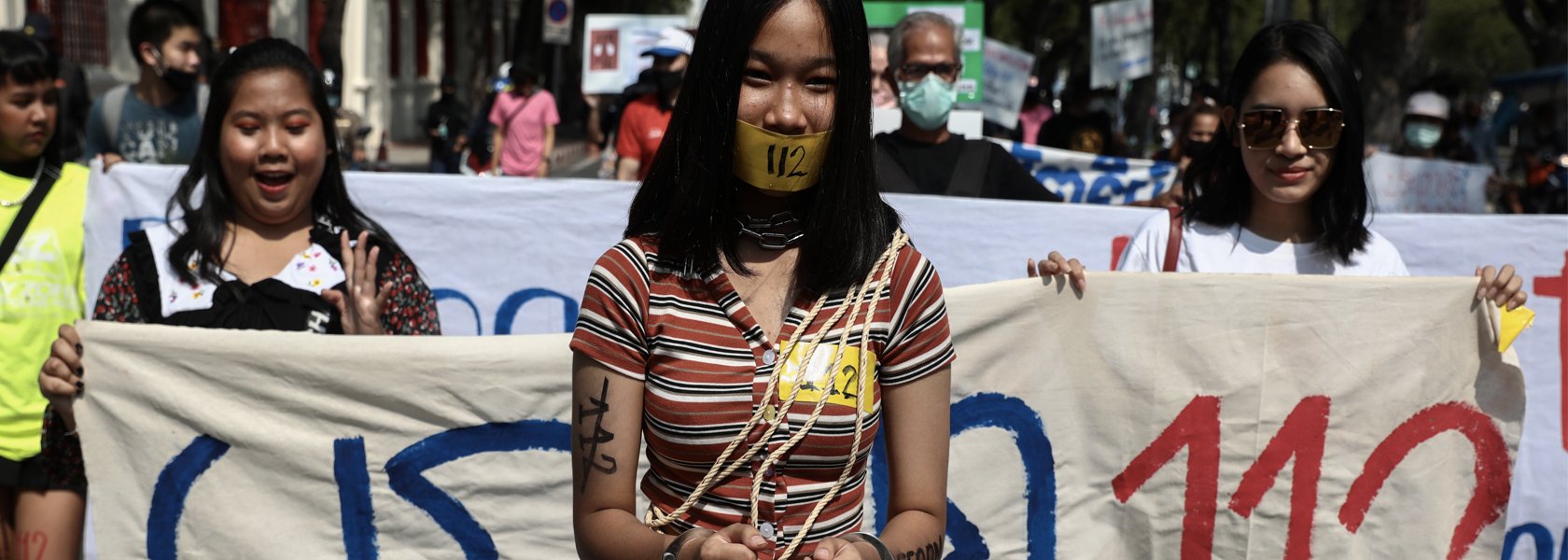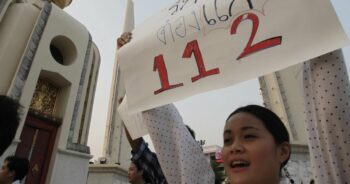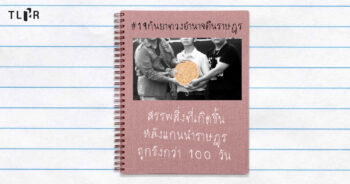(Bangkok, Paris) A new wave of arrests, detentions, and prosecutions for royal defamation could result in several pro-democracy activists receiving prison sentences ranging between 120 and 300 years, a new report released today by FIDH, Thai Lawyer for Human Rights (TLHR), and Internet Law Reform Dialogue (iLaw) warns.
The report, titled “Second wave: The return of lèse-majesté in Thailand”, documents how the Thai government has used and abused Article 112 of the Criminal Code (“lèse-majesté”) to target pro-democracy activists and protesters in relation to their online political expression and participation in peaceful pro-democracy demonstrations.
Article 112 imposes jail terms for those who defame, insult, or threaten the King, the Queen, the Heir to the throne, or the Regent. Persons found guilty of violating Article 112 face prison terms of three to 15 years for each count.
“Lèse-majesté prosecutions severely undermine the rights to liberty, fair trial, and freedom of opinion and expression. It is crucial that the international community expresses its concern over the ongoing abuse of Article 112, which could result in more people unjustly put behind bars for a very long time.” Adilur Rahman Khan, FIDH Secretary-General
In late November 2020, after a pause of about two years, the Thai government resurrected Article 112 in response to the rising pro-democracy protests that swept Thailand for most of 2020. During many of the peaceful pro-democracy demonstrations, protesters broke Thailand’s longstanding political taboo by directly criticizing the monarchy and calling for reforms of the institution.
Between 24 November 2020 and 31 August 2021, 124 individuals were charged under Article 112, including at least eight children (i.e. individuals under the age of 18). During the same period, authorities detained at least 19 individuals under Article 112. As of 31 August 2021, two remained detained.
Nearly half of the lèse-majesté charges brought against pro-democracy activists, protesters, and other individuals during that period were related to forms of online expression. Article 112 charges often derived from complaints made by members of royalist groups, cyber vigilantes, and other internet users, and, in some cases, following online information operations (IOs) conducted by the Thai military.
Thai authorities continued to widely interpret Article 112, and stretched the letter of the law to absurdity, resulting in some individuals facing charges under Article 112 for criticizing the government’s COVID-19 vaccine management, wearing crop tops, insulting the previous monarch, or quoting a United Nations (UN) statement about Article 112.
Over the past 10 years, various UN human rights monitoring mechanisms have repeatedly expressed concern over Article 112 and declared that its enforcement is inconsistent with international law. Members of the international community also expressed their concern over the use of Article 112.
The report makes practical recommendations to address human rights violations that derive from the enforcement of Article 112 and to ensure its compliance with Thailand’s human rights obligations under international law.




